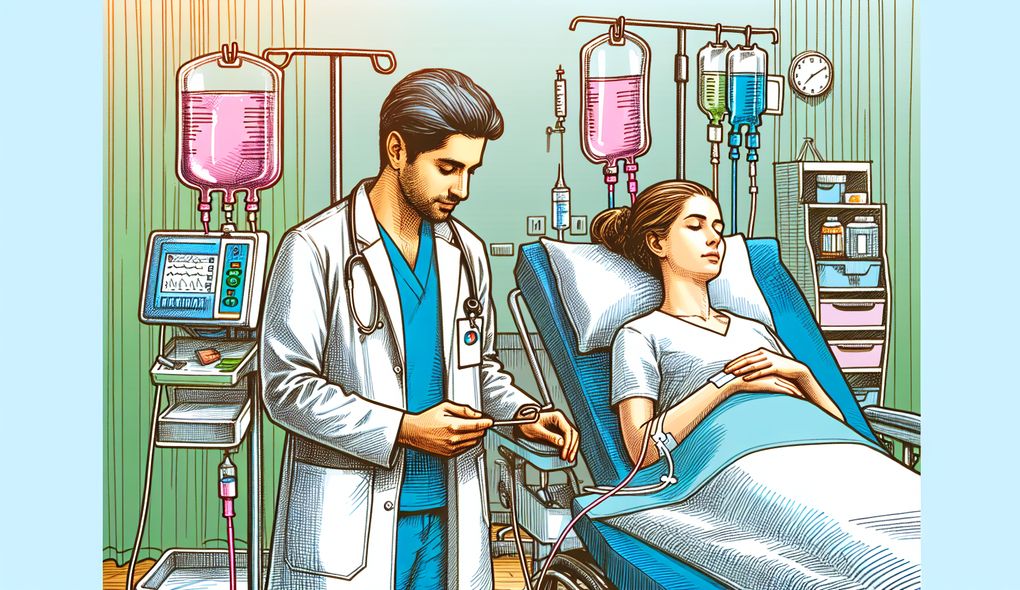Do you have Basic Life Support (BLS) and Advanced Cardiovascular Life Support (ACLS) certifications?
INTERMEDIATE LEVEL

Sample answer to the question:
Yes, I have Basic Life Support (BLS) and Advanced Cardiovascular Life Support (ACLS) certifications. I obtained these certifications through the American Heart Association and have kept them up to date. With these certifications, I am equipped to respond to cardiac emergencies and provide immediate care, including CPR, defibrillation, and administering emergency medications. I am confident in my ability to handle critical situations and ensure the safety and well-being of patients.
Here is a more solid answer:
Yes, I hold both Basic Life Support (BLS) and Advanced Cardiovascular Life Support (ACLS) certifications. I received my certifications from the American Heart Association, and I regularly attend refresher courses to stay up to date with the latest guidelines and techniques. These certifications enable me to effectively respond to cardiac emergencies, including performing CPR, using AEDs, and administering emergency medications. In my previous role as a nurse, I have applied my BLS and ACLS knowledge to save lives and stabilize patients during critical situations. For example, I successfully performed CPR on a patient experiencing cardiac arrest, which resulted in their survival until the arrival of the medical team. My proficiency in BLS and ACLS protocols ensures that I am well-prepared to handle any emergency situation that may arise in the IV Therapy Nurse Practitioner role.
Why is this a more solid answer?
This is a solid answer as it provides more details about the candidate's certifications and how they have applied their BLS and ACLS knowledge in a previous role. The answer also highlights the importance of these certifications in an emergency situation and their relevance to the IV Therapy Nurse Practitioner role. However, it could be improved by providing more specific examples of how the candidate's BLS and ACLS skills have contributed to effective patient care.
An example of a exceptional answer:
Absolutely! I possess both Basic Life Support (BLS) and Advanced Cardiovascular Life Support (ACLS) certifications, which are vital for providing optimal care in critical situations. I obtained these certifications through the American Heart Association and have consistently maintained their validity. With my BLS certification, I am proficient in performing high-quality CPR, using automated external defibrillators (AEDs), and initiating basic life-saving techniques. Similarly, my ACLS certification equips me with the knowledge and skills to manage cardiac arrest scenarios, apply advanced resuscitation algorithms, and administer life-saving medications. In my previous role as an emergency room nurse, I encountered multiple instances where my BLS and ACLS training proved crucial. For instance, I led a team in successfully resuscitating a patient in cardiac arrest, which resulted in their full recovery. Additionally, my ACLS training enabled me to make critical decisions during code blue situations, leading to positive patient outcomes. As an IV Therapy Nurse Practitioner, having BLS and ACLS certifications ensures that I can respond swiftly and effectively in emergency situations and provide the highest level of care to patients in need.
Why is this an exceptional answer?
This is an exceptional answer as it provides comprehensive details about the candidate's BLS and ACLS certifications, including specific skills and scenarios where they have applied their training. The answer demonstrates the candidate's ability to lead a team during resuscitation efforts and make critical decisions in emergency situations. It also emphasizes the candidate's commitment to maintaining the validity of their certifications and their relevance to the IV Therapy Nurse Practitioner role.
How to prepare for this question:
- Familiarize yourself with the latest BLS and ACLS guidelines and protocols, as they are regularly updated.
- Take refresher courses and participate in simulations to practice applying BLS and ACLS skills.
- Stay knowledgeable about the different types of emergency medications commonly used in cardiac arrest scenarios.
- Prepare specific examples of how you have applied BLS and ACLS training in real-life situations, highlighting the positive impact it had on patient outcomes.
- Be ready to discuss your ability to handle high-pressure situations and make critical decisions effectively.
What are interviewers evaluating with this question?
- BLS and ACLS certifications

